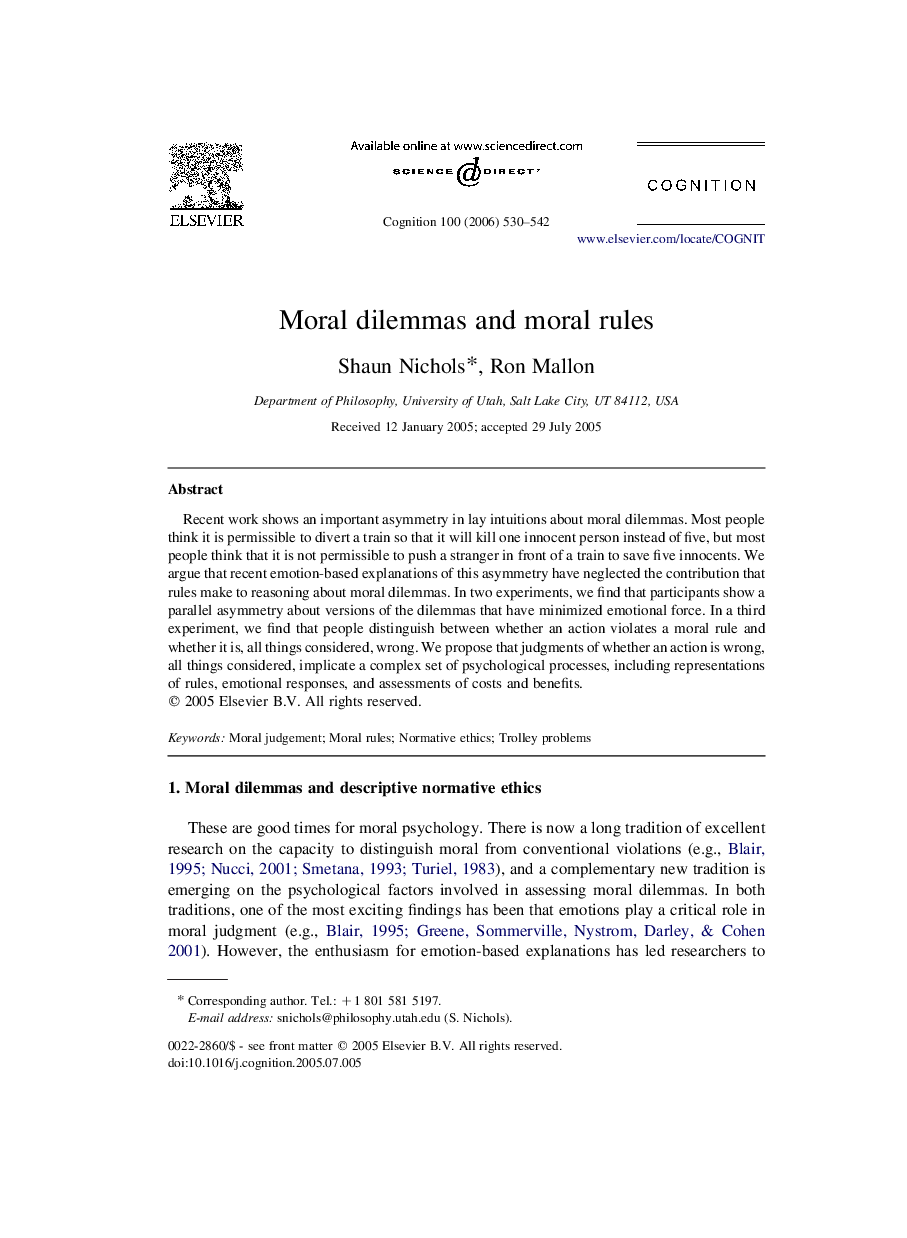| Article ID | Journal | Published Year | Pages | File Type |
|---|---|---|---|---|
| 927474 | Cognition | 2006 | 13 Pages |
Recent work shows an important asymmetry in lay intuitions about moral dilemmas. Most people think it is permissible to divert a train so that it will kill one innocent person instead of five, but most people think that it is not permissible to push a stranger in front of a train to save five innocents. We argue that recent emotion-based explanations of this asymmetry have neglected the contribution that rules make to reasoning about moral dilemmas. In two experiments, we find that participants show a parallel asymmetry about versions of the dilemmas that have minimized emotional force. In a third experiment, we find that people distinguish between whether an action violates a moral rule and whether it is, all things considered, wrong. We propose that judgments of whether an action is wrong, all things considered, implicate a complex set of psychological processes, including representations of rules, emotional responses, and assessments of costs and benefits.
